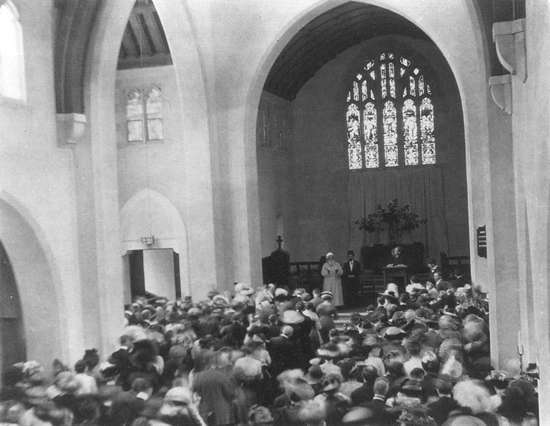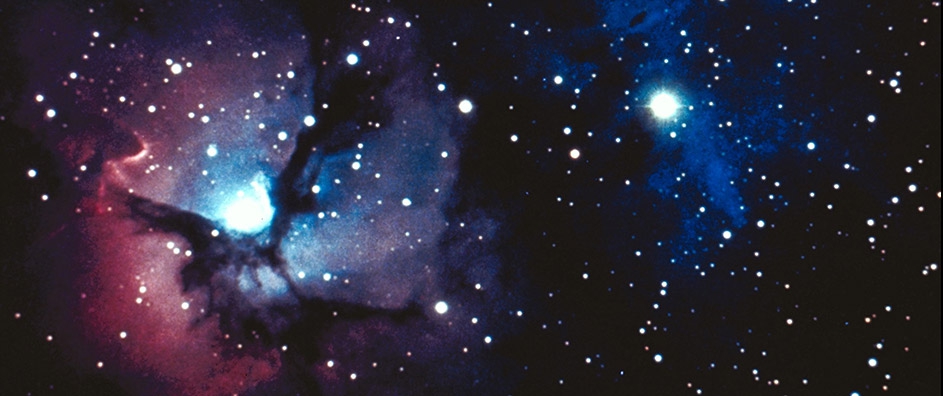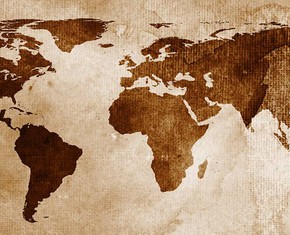The views expressed in our content reflect individual perspectives and do not represent the authoritative views of the Baha'i Faith.
A little more than a hundred years ago, Abdu’l-Baha, the son of Baha’u’llah, Prophet and Founder of the Baha’i Faith, addressed a crowded hotel ballroom in Chicago, Illinois. He gave a powerful, profound outline of the Baha’i view of the Universe, which clearly and cogently defines the Baha’i belief in God and God’s creation:
When we carefully investigate the kingdoms of existence and observe the phenomena of the universe about us, we discover the absolute order and perfection of creation. The dull minerals in their affinities, plants and vegetables with power of growth, animals in their instinct, man with conscious intellect and the heavenly orbs moving obediently through limitless space are all found subject to universal law, most complete, most perfect. That is why a wise philosopher has said, “There is no greater or more perfect system of creation than that which already exists.” The materialists and atheists declare that this order and symmetry is due to nature and its forces; that composition and decomposition which constitute life and existence are exigencies of nature; that man himself is an exigency of nature; that nature rules and governs creation; and that all existing things are captives of nature. Let us consider these statements. Inasmuch as we find all phenomena subject to an exact order and under control of universal law, the question is whether this is due to nature or to divine and omnipotent rule. The materialists believe that it is an exigency of nature for the rain to fall and that unless rain fell the earth would not become verdant. They reason that if clouds cause a downpour, if the sun sends forth heat and light and the earth is endowed with capacity, vegetation must inevitably follow; therefore, plant life is a property of these natural forces and is a sign of nature; just as combustion is the natural property of fire, therefore, fire burns, and we cannot conceive of fire without its burning.

Abdu’l-Baha in Chicago
In reply to these statements we say that from the premises advanced by materialists, the conclusions are drawn that nature is the ruler and governor of existence and that all virtues and perfections are natural exigencies and outcomes. Furthermore, it follows that man is but a part or member of that whereof nature is the whole.
Man possesses certain virtues of which nature is deprived. He exercises volition; nature is without will. For instance, an exigency of the sun is the giving of light. It is controlled — it cannot do otherwise than radiate light — but it is not volitional. An exigency of the phenomenon of electricity is that it is revealed in sparks and flashes under certain conditions, but it cannot voluntarily furnish illumination. An exigency or property of water is humidity; it cannot separate itself from this property by its own will. Likewise, all the properties of nature are inherent and obedient, not volitional; therefore, it is philosophically predicated that nature is without volition and innate perception. In this statement and principle we agree with the materialists. But the question which presents food for reflection is this: How is it that man, who is a part of the universal plan, is possessed of certain qualities whereof nature is devoid? Is it conceivable that a drop should be imbued with qualities of which the ocean is completely deprived? The drop is a part; the ocean is the whole. Could there be a phenomenon of combustion or illumination which the great luminary the sun itself did not manifest? Is it possible for a stone to possess inherent properties of which the aggregate mineral kingdom is lacking? For example, could the fingernail which is a part of human anatomy be endowed with cellular properties of which the brain is deprived?
















Comments
Sign in or create an account
Continue with Googleor